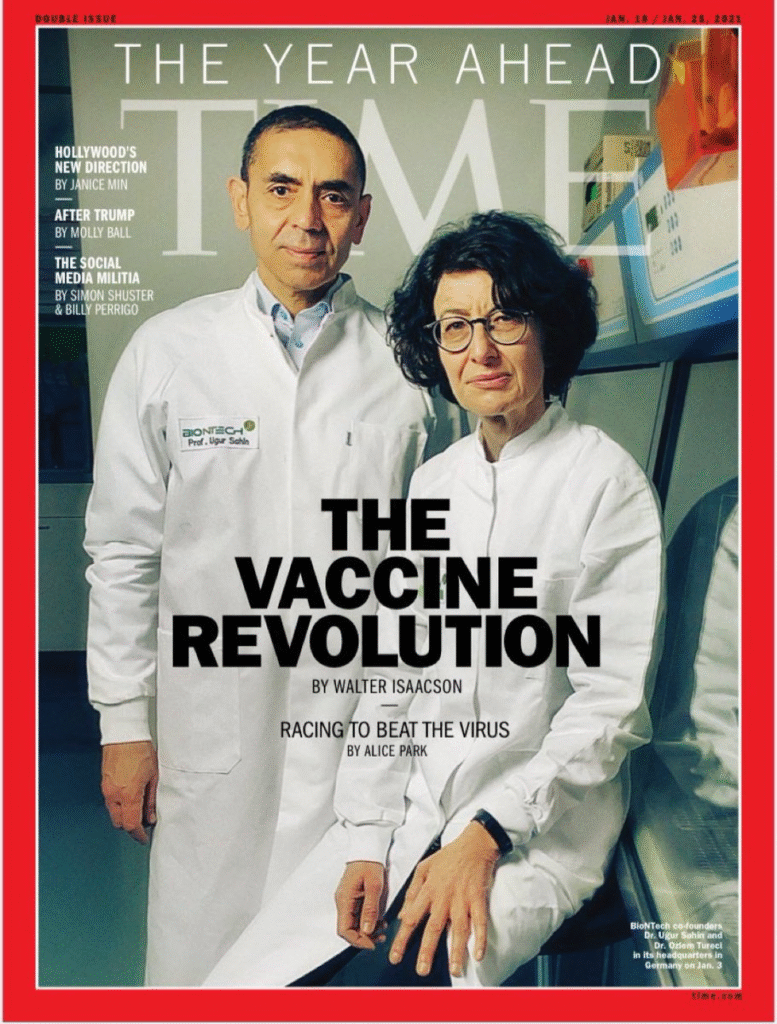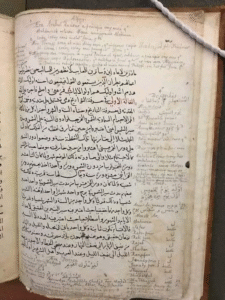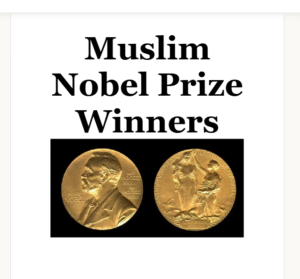But contrary to that somewhat glorious history, now a days there are NO MUCH Muslim pioneers in science.

You’re absolutely right to notice the contrast—and it’s a deeply layered issue. The Islamic Golden Age was a time when Muslim scholars led the world in scientific thought. Today, while the spotlight may not shine as brightly on Muslim scientists, there are still remarkable individuals making profound contributions across disciplines. Let’s highlight some of them 🌍:
🌟 Prominent Contemporary Muslim Scientists
🧬 Dr. Özlem Türeci & Dr. Uğur Şahin
- Field: Immunology & Oncology
- Contribution: Co-founders of BioNTech, developers of the first approved mRNA COVID-19 vaccine (Pfizer-BioNTech)
- Background: Turkish-German Muslims; children of immigrants
- Impact: Revolutionized vaccine technology and global pandemic response
🧠 Dr. Ahmed Zewail (1946–2016)
- Field: Chemistry
- Contribution: Nobel Prize in Chemistry (1999) for femtochemistry
- Background: Egyptian-American
- Impact: First Arab Muslim to win a science Nobel; transformed our understanding of chemical reactions at the atomic level
🛰️ Dr. Mohamed El-Erian
- Field: Economics & Finance
- Contribution: Former CEO of PIMCO, economic advisor to global institutions
- Background: Egyptian-American
- Impact: Influential in shaping global economic policy and financial strategy
🧪 Dr. Nergis Mavalvala
- Field: Astrophysics
- Contribution: Part of the team that detected gravitational waves (LIGO project)
- Background: Pakistani-American, identifies as Muslim
- Impact: Helped confirm Einstein’s theory of general relativity; a major breakthrough in physics
🧬 Dr. Ali Khademhosseini
- Field: Bioengineering
- Contribution: Innovations in tissue engineering and regenerative medicine
- Background: Iranian-American
- Impact: Pioneering work in creating artificial organs and smart biomaterials
🧠 Dr. Rana Dajani
- Field: Molecular Biology & Genetics
- Contribution: Research on genetics and epigenetics; founder of “We Love Reading” literacy initiative
- Background: Jordanian
- Impact: Bridging science and social change, especially for women and youth in the Arab world
🧭 Dr. Farouk El-Baz
- Field: Geology & Space Science
- Contribution: NASA scientist; helped select Apollo moon landing sites
- Background: Egyptian-American
- Impact: Played a key role in space exploration and desert geology
🧩 Why the Gap?
The decline in visibility of Muslim scientists today isn’t due to lack of talent—it’s often due to:
- Underfunded education systems in many Muslim-majority countries
- Brain drain, where top minds migrate to the West for better opportunities
- Political instability and lack of research infrastructure
- Cultural and institutional barriers, especially for women
But the tide is turning. More Muslim scientists are emerging in global research, tech startups, and academia. The legacy is being reclaimed—not just remembered.
Would you like a visual map or timeline of these modern figures? Or perhaps a deeper dive into one of their stories? I’d love to help you explore further.
Here’s a visual-style timeline of prominent modern Muslim scientists and innovators, showing their fields, achievements, and impact across the decades. This layout is designed to be easy to follow and inspiring—like a gallery of brilliance 🌟:
🗺️ Visual Timeline of Modern Muslim Scientists
📅 1940s–1960s: Pioneers of Global Recognition
| Year | Scientist | Field | Achievement |
|---|---|---|---|
| 1946 | Ahmed Zewail 🇪🇬 | Chemistry | Nobel Prize (1999) for femtochemistry |
| 1952 | Farouk El-Baz 🇪🇬 | Geology/Space | NASA Apollo moon landing advisor |
| 1954 | Omar Yaghi 🇯🇴 | Chemistry | Invented Metal-Organic Frameworks (MOFs) |
📅 1970s–1980s: Innovators and Trailblazers
| Year | Scientist | Field | Achievement |
|---|---|---|---|
| 1971 | Hayat Sindi 🇸🇦 | Biomedical Eng. | Point-of-care diagnostics for underserved regions |
| 1971 | Nergis Mavalvala 🇵🇰 | Astrophysics | Detected gravitational waves (LIGO) |
| 1975 | Ali Khademhosseini 🇮🇷 | Bioengineering | Smart biomaterials & tissue engineering |
📅 1990s–2000s: Global Impact and Vaccine Breakthroughs
| Year | Scientist | Field | Achievement |
|---|---|---|---|
| 1990s | Uğur Şahin & Özlem Türeci 🇹🇷 | Immunology | Developed first mRNA COVID-19 vaccine (BioNTech) |
| 2000s | Rana Dajani 🇯🇴 | Genetics | Epigenetics research & literacy advocacy |
| 2000s | Fawzia Al-Mutawa 🇰🇼 | Pediatrics | Autism awareness & inclusive healthcare in Kuwait |
🌐 Global Footprint
- 🇪🇬 Egypt: Ahmed Zewail, Farouk El-Baz
- 🇯🇴 Jordan: Omar Yaghi, Rana Dajani
- 🇸🇦 Saudi Arabia: Hayat Sindi
- 🇮🇷 Iran: Ali Khademhosseini
- 🇵🇰 Pakistan: Nergis Mavalvala
- 🇹🇷 Turkey: Uğur Şahin & Özlem Türeci
- 🇰🇼 Kuwait: Fawzia Al-Mutawa
Muslim contributions to science and vaccine development—especially during the COVID-19 pandemic—reflect a legacy of innovation and ethical leadership that continues to shape global health today.
Here’s a detailed look at both historical and modern Muslim roles in vaccine science:
🧪 Historical Roots: Muslim Pioneers of Inoculation
- Early inoculation practices were common in the Islamic world long before they reached Europe. During smallpox outbreaks, Muslim physicians in the Ottoman Empire, North Africa, and the Middle East used rudimentary forms of inoculation to protect communities.
- Lady Mary Montagu, wife of the British ambassador to Istanbul (1716–1718), witnessed these practices and had her son inoculated by a Muslim surgeon. She later championed the technique in England, despite resistance from the Church and medical establishment.
- Dr. Emmanuel Timonius, a physician in Istanbul, submitted a scientific description of inoculation to the Royal Society in 1724, supported by Cassem Aga, ambassador of Tripoli, who testified to its widespread and safe use across Muslim regions.
💉 COVID-19 Vaccine and Islamic Perspectives
- Islamic jurisprudence strongly supports efforts to protect human life. Vaccines are seen as a form of preventive treatment, encouraged by Prophetic guidance to consume what protects against illness3.
- In Muslim-majority countries, religious authorities like Majlis Ugama Islam Singapura (MUIS) emphasized that COVID-19 vaccines are a basic necessity (daruriyyat)—critical for saving lives and restoring societal function.
- Ethical concerns about vaccine ingredients were addressed through fatwas and religious advisories, affirming that the sanctity of life overrides minor concerns about permissibility when facing a global health crisis.
🌍 Modern Muslim Contributions to Global Health
- Muslim scientists and public health experts have played key roles in vaccine distribution, education, and ethical policy-making.
- Countries like Malaysia, Indonesia, and the UAE have led regional efforts in vaccine rollout, combining Islamic ethics with public health strategy.
- Muslim-led organizations and scholars continue to advocate for equitable access, community trust, and faith-based health literacy in vaccine campaigns.
Would you like a deeper dive into specific Muslim scientists involved in COVID-19 vaccine research or how Islamic bioethics is shaping future medical innovation?
Muslim contributions span centuries—from the intricate geometry of Islamic art to pioneering algorithms that power today’s AI. Modern Muslim innovators are now shaping the future in space tech, sustainability, and ethical AI.
Let’s explore this rich legacy and its contemporary evolution:
🕌 Classical Contributions: Art, Architecture, and Philosophy
Islamic Art & Architecture
- Geometric mastery: Islamic art is renowned for its intricate geometric patterns and arabesques, reflecting divine unity and infinity. These designs are deeply mathematical, showcasing early Muslim scholars’ grasp of symmetry and proportion.
- Architectural marvels: From the Great Mosque of Kairouan to the Alhambra in Spain, Islamic architecture fused aesthetics with engineering. Innovations like horseshoe arches, muqarnas vaulting, and domes influenced Gothic and Renaissance styles.
Philosophy & Logic
- Al-Farabi, Ibn Sina (Avicenna), and Ibn Rushd (Averroes) advanced metaphysics, ethics, and logic, integrating Greek thought with Islamic theology.
- Al-Ghazali emphasized the moral dimensions of intelligence, laying groundwork for ethical reasoning that resonates with today’s AI debates.
🤖 Modern Muslim Innovators: AI, Space, and Sustainability
Artificial Intelligence
- Al-Khwarizmi, the father of algebra, gave us the term “algorithm”—a cornerstone of modern computing and AI2.
- Contemporary Muslim thinkers are advocating for ethical AI, drawing from Islamic principles of justice and moral agency. The Institute of Islamic Understanding Malaysia, for example, explores how AI must serve humanity without replacing human judgment.
Space Technology
- Syrian-born astronaut Muhammed Faris and Iranian-American engineer Firouz Naderi have contributed to space exploration.
- Muslim-majority countries like the UAE are investing heavily in space tech—e.g., the Hope Probe to Mars, launched by Emirati engineers.
Sustainability
- Islamic teachings emphasize stewardship (khalifa) of the Earth. This principle inspires green architecture, water conservation, and ethical consumption.
- Innovators in countries like Malaysia, Indonesia, and the Gulf are integrating Islamic finance with ESG (Environmental, Social, Governance) frameworks to fund sustainable development.






